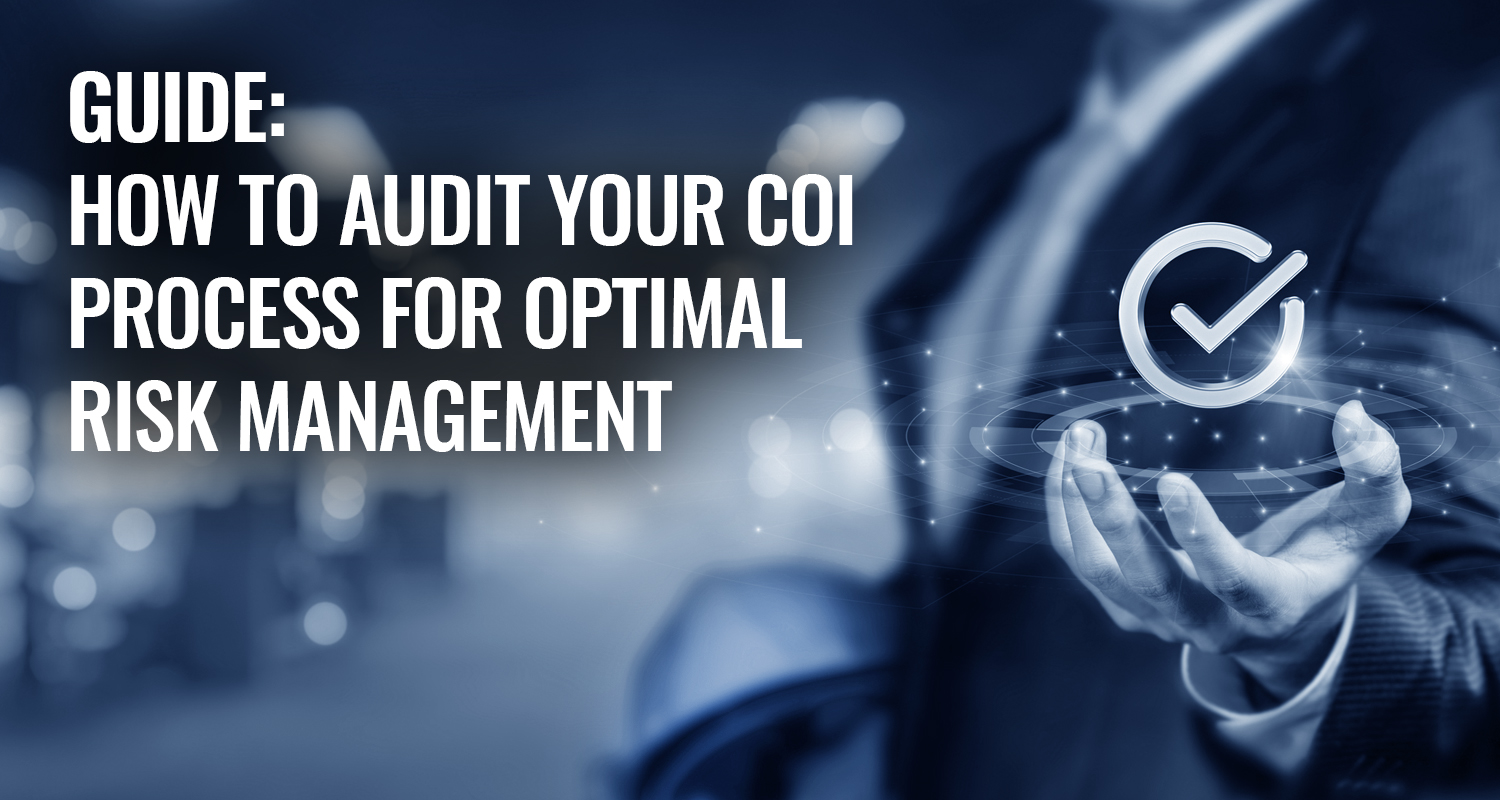General contractors (GCs) collect certificates of insurance (COIs) from each subcontractor during the procurement process. The COI briefly outlines the terms and expiration dates of a subcontractor’s insurance policies. This information helps GCs determine if it’s risky to hire that particular subcontractor for the job.
Many GCs still request COIs through phone calls and emails and use Excel spreadsheets for certificate of insurance tracking. Now that automated alternatives allow GCs to request, collect, and manage COI requests with a click of a button, manually collecting and managing COIs is a waste of time and resources.
Perceived Benefit of Manual COI Collection
Some firms may continue to collect COIs manually in an effort to create or maintain a line of communication with contractors. But the technology revolution hit the construction industry years ago. It’s completely normal — and expected — for GCs and subcontractors to communicate through online platforms.
In spite of this, many still rely on text messages and emails for COI collection because they’re cheaper. At the same time, they’re inconvenient to manage and you still end up losing money in the form of lost productivity.
The Reality: Manual COI Collection Contributes to a Loss in Productivity
Manual COI collection is neither efficient nor cost-effective. It’s often assigned to team members who have better things to do, and the data can be difficult to access. Technology can do this more easily.
Project Managers Shouldn’t Worry about “Back Office” Work
One of the biggest mistakes GCs make when collecting COIs manually is unnecessarily piling on to the project manager’s workload. You may have a dedicated team of people to collect and track your COIs. But whenever there’s a problem, the project manager still has to get involved, which takes them away from managing the actual construction work.
Technology simplifies this process by giving you a better line of communication with subcontractors without having to go through the project manager. And since the collection and tracking process is done systemically, there are fewer chances of issues that might need the project manager’s involvement.
It can be time-consuming to make phone calls and send emails, to follow-up when sub-contractors don’t send the COIs in a timely manner, and to properly store the COI for future reference. And when COI collection gets delayed, so does subcontractor payment. The project manager then has to handle sub-contractors complaining about their payments. In short, efficient COI collection benefits everyone.
Manual COI Collection Costs Can Add up Quickly
Some firms have already realized the inefficiency of having a PM in charge of COI collection. These GCs hire internal insurance compliance teams for the task instead.
The main job of these internal insurance teams should be to review the documents for the insurance coverage. Instead, they often have to spend their time chasing after subcontractors to receive the documents and checking the validity of their COIs.
Firms can save even more money by automating COI management with solutions like Constrafor, boiling down a potentially hour-long process to just a couple of clicks.
Hard-to-Access Data Causes Confusion and Productivity Loss
Manually-collected COIs are often sent through emails and saved as computer files. This means team members have to search through different folders to find the right documents. But the whole process of searching through shared computer folders manually is a huge waste of time and results in productivity loss.
Analyzing COIs Manually Is Time-Consuming and Error-Prone
Once COIs are obtained, they have to be analyzed. Does the subcontractor have the appropriate kind of insurance to mitigate risk on this job? Has the policy expired? Sometimes mistakes are made due to manual evaluation.
Subcontractors may accidentally submit an expired COI, which you might not detect early enough when you manually and analyze collect the documents. If you only notice this several days after collecting the documents, you’ll have to go through another round of requesting valid and updated COIs. That’s a huge chunk of your time lost, which translates to delays and loss of productivity.
Wouldn’t it be nice to only receive active COIs so you don’t spend time reviewing their expiration dates?
Automate COI Management with Constrafor
To resolve the issues associated with manual COI management, automate the process with Constrafor. Leveraging this technology allows you to:
- Immediately see which subcontractors on the platform have the necessary insurance
- Automate the process of requesting COIs and sending follow-up reminders
- Receive an alert when a subcontractor’s COI is about to expire
- Give every department direct access to COI data to eliminate data silos
- Access COIs anytime, anywhere thanks to a cloud-based system.
With Constrafor, insurance compliance and COI collection no longer cause a loss of productivity. Best of all, Constrafor gathers and tracks all of your subcontractor documents, allowing you to streamline your entire procurement and invoicing process and make data-informed decisions. Sign up for a free trial to experience Constrafor today.





